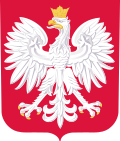
Back Eleccions parlamentàries poloneses de 2007 Catalan Parlamentní volby v Polsku 2007 Czech Parlamentswahl in Polen 2007 German Elecciones parlamentarias de Polonia de 2007 Spanish 2007. aasta Poola parlamendivalimised Estonian Puolan parlamenttivaalit 2007 Finnish Élections parlementaires polonaises de 2007 French Eleccións xerais de Polonia de 2007 Galician Լեհաստանի խորհրդարանական ընտրություն (2007) Armenian Elezioni parlamentari in Polonia del 2007 Italian
| ||||||||||||||||||||||||||||||||||||||||||||||||||||||||||||||||||||||||||||||||||
| Opinion polls | ||||||||||||||||||||||||||||||||||||||||||||||||||||||||||||||||||||||||||||||||||
| Registered | 30,615,471 | |||||||||||||||||||||||||||||||||||||||||||||||||||||||||||||||||||||||||||||||||
|---|---|---|---|---|---|---|---|---|---|---|---|---|---|---|---|---|---|---|---|---|---|---|---|---|---|---|---|---|---|---|---|---|---|---|---|---|---|---|---|---|---|---|---|---|---|---|---|---|---|---|---|---|---|---|---|---|---|---|---|---|---|---|---|---|---|---|---|---|---|---|---|---|---|---|---|---|---|---|---|---|---|---|
|
| ||||||||||||||||||||||||||||||||||||||||||||||||||||||||||||||||||||||||||||||||||
Sejm | ||||||||||||||||||||||||||||||||||||||||||||||||||||||||||||||||||||||||||||||||||
All 460 seats in the Sejm 231 seats needed for a majority | ||||||||||||||||||||||||||||||||||||||||||||||||||||||||||||||||||||||||||||||||||
| Turnout | 16,477,734 (53.82%) | |||||||||||||||||||||||||||||||||||||||||||||||||||||||||||||||||||||||||||||||||
| ||||||||||||||||||||||||||||||||||||||||||||||||||||||||||||||||||||||||||||||||||
All 100 seats in the Senate 51 seats needed for a majority | ||||||||||||||||||||||||||||||||||||||||||||||||||||||||||||||||||||||||||||||||||
| Turnout | 16,475,672 (53.81%) | |||||||||||||||||||||||||||||||||||||||||||||||||||||||||||||||||||||||||||||||||
This lists parties that won seats. See the complete results below.
| ||||||||||||||||||||||||||||||||||||||||||||||||||||||||||||||||||||||||||||||||||
 |
|---|
Parliamentary elections were held in Poland on 21 October 2007. All 460 members of the Sejm and 100 senators of the Senate were elected. The largest opposition group, Civic Platform (PO), soundly defeated the ruling Law and Justice (PiS) party and its allies. Throughout the campaign, polls showed conflicting results as to which of the two parties had the greater support, yet by the closing week the polls had swung in favour of Civic Platform. Three other political groups won the election into the Sejm, the centre-left Left and Democrats coalition, the agrarian Polish People's Party, and the tiny German Minority group. Law and Justice's former minor coalition partners, the League of Polish Families and the Self-Defense of the Republic of Poland suffered an enormous voter backlash, failing to cross the 5% electoral threshold in order to enter the Sejm. Consequently, both parties lost all of their seats.
Early elections were called after the Sejm voted for its dissolution, due to serious allegations of massive corruption on the part of Andrzej Lepper, leader of the Self-Defense of the Republic of Poland, whose party served as a junior coalition partner to the government of Prime Minister Jarosław Kaczyński.[1] All 460 seats in the Sejm and all 100 seats in the Senate were up for election.
Prime Minister and PiS leader Jarosław Kaczyński stepped down from office on 15 November, with Civic Platform leader Donald Tusk sworn in as Poland's Prime Minister the following day. Civic Platform consequently formed a coalition majority government with the Polish People's Party.
The turnout for the elections was 54%, an increase of 13 pp from the 2005 elections, seeing the highest voter turnout in a Polish parliamentary election since the semi-free elections of 1989.
Cite error: There are <ref group=lower-alpha> tags or {{efn}} templates on this page, but the references will not show without a {{reflist|group=lower-alpha}} template or {{notelist}} template (see the help page).
- ^ "Polish MPs choose early election". BBC News. 2007-09-07. Retrieved 2012-05-17.
© MMXXIII Rich X Search. We shall prevail. All rights reserved. Rich X Search






